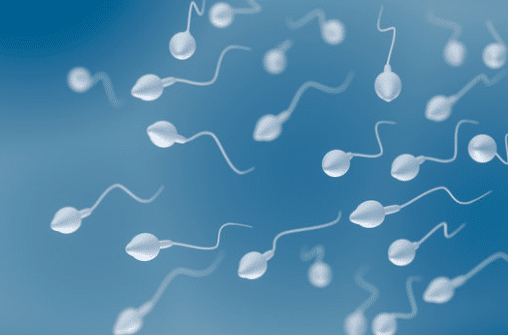Water semen is a problem that affects men at some point in their lives, either temporarily or lasting for a long time. The causes of watery semen vary, and medical help may be required at some point. Watery semen might lead to infertility issues as the man would find it increasingly difficult to impregnate a woman because of the low quality of sperm being produced. This is often a clear sign of low sperm count.
In this article, we would be diving into details about what watery semen is all about, including causes and treatment.
What Is Watery Semen?

The sperm is contained in a liquid called semen, which shoots out of the male urethra during ejaculation. The semen is supposed to be thick enough to transport the sperm into the body of the woman. When the semen gets too watery, it becomes a problem as it lacks the consistency to convey the sperm to the female’s ovaries. This makes it difficult to get a woman pregnant and is a leading cause of infertility in couples.
Causes of Watery Semen
There are various causes of watery semen, including health problems and lifestyle choices.
Low Sperm Count
Having a low sperm count could lead to watery semen. Low sperm count, also known as oligospermia, means that your semen contains less sperm than normal. What is regarded as low sperm count is when one produces less than 15 million sperm per milliliter of semen. This could make it difficult, but not impossible, to get someone pregnant.
There are many causes of low sperm count, including genetics and hormone disorders, but some lifestyle choices could also increase the chances of having low sperm count, including drug and alcohol abuse, tumors, infections, certain medications, exposure to radiation and toxins, and so on. Some of these causes are easily reversible, such as quitting drugs or alcohol intake or staying off certain medications.
Varicocele
This is a swelling of the veins that run from the testicle to the scrotum. Varicocele could occur on either of the testicles or both. It does not occur with noticeable symptoms and is not entirely a health risk, but it affects sperm production and quality. For most people, varicocele does not cause infertility problems, and it is very treatable.
Frequent Ejaculation
Ejaculating too frequently or very often could also reduce the quality of sperm. This can happen from either masturbating or having sex two or three times a day. This is one of the disadvantages of releasing sperm daily. One medical study confirmed this too, stating that semen volume reduced with frequent ejaculation.
To reverse this effect, you would have to stay hours or days from ejaculating or engaging in sexual activities. You would also have to eat well and exercise regularly.
Retrograde Ejaculation
Retrograde ejaculation or reverse ejaculation occurs when semen goes through the bladder instead of going out of the urethra in the penis. Such a person may reach and experience sexual climax but would release less semen, which would be very watery. The urine may also be thick or almost whitish because it contains semen from the bladder. Retrograde ejaculation is not harmful, and treatment is very possible.
Zinc Deficiency
Not having enough zinc in the body can reduce sperm quality, which could trigger infertility. Zinc is an important mineral with lots of benefits to the body, including helping reproduction. But the body does not produce zinc by itself, so you would have to eat foods that are rich in zinc, like meat, beans, and nuts, or take zinc supplements to boost your zinc levels.
Here are some healthy changes that may help boost your sperm count and improve the thickness of your semen:
- Sto smoking cigarettes.
- Lose weight.
- Reduce your alcohol intake.
- Engage in physical exercise often.
Does Watery Semen Indicate Infertility?
Watery semen does not immediately lead to infertility as people with watery sperm might still be able to conceive, albeit with some difficulty. Some causes of watery semen are temporary, and a lifestyle change could resolve these issues and increase the quality of sperm. Otherwise, treatment may be needed if one finds it almost impossible to conceive. But it is always best to consult with a doctor if the problem persists.



